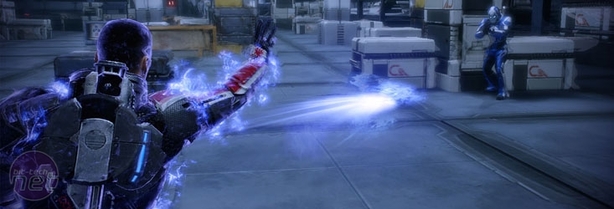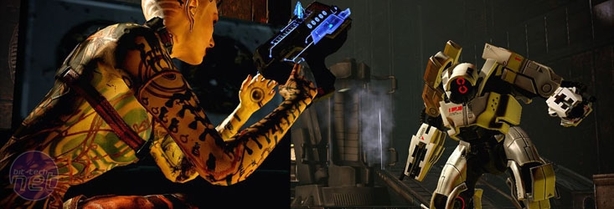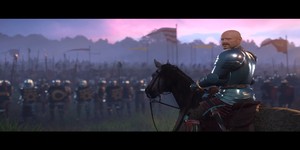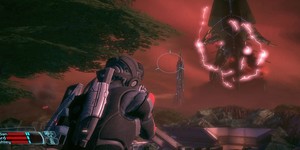
Shepherd is my Shepherd
One of the weirder strokes of brilliance that Bioware has introduced in Mass Effect 2 is the idea that Shepherd actually has to act like a ship’s captain at times, dealing with issues like fuel reserves and munitions.Travelling through the galaxy in Mass Effect 2 is now a bit more complex than just ‘click to engage FTL’. You actually have to stop at fuel depots and keep a decent stock of scout probes to fire onto uninhabited planets in your search for the resources needed to upgrade your weapons. Scanning for materials isn’t just fire and forget either – you actually have to sweep the planets with your mouse to scan them, launching probes only at profitable looking areas.
These ideas felt odd at first, especially given how time consuming the idea of scanning an entire system might be – but that’s part of what makes the in-game economy work. Probes are expensive and finding palladium stores can take a lot of time, so weapon upgrades naturally become staggered and more satisfying once they are finally made available.
Unfortunately, not all the minigames featured in Mass Effect 2 fit so snugly with the fiction and the new version of the hacking minigames can prove especially annoying. Having to match up large, moving icons within a strict time limit isn’t something that’s enjoyable enough the first time you have to do it, so when you’re repeating it throughout the entire game then it starts to feel like rubbing Tabasco in your eye. Luckily, they aren’t a required part of the adventure.
Combat, on the other hand, is. It’s also the part of the game that Bioware has been vocal about improving the most following the complaints about the fighting in the first game. As such, they’ve added a tweaked interface that lets you give orders a lot more easily and implemented a brand new cover system. They’ve also completely changed the way that weapons work – dropping the overheat system for a more direct ammo counter. Bioware has tried to hide the ammo system by talking about heatsinks, but it’s not worth getting confused over.
Some of the changes work well and there are new ideas we really like, such as removing the over-powered grenades and switching to a regenerating health system. The new weapons are incredibly satisfying to use too and it’s good that the non-combat classes have some different types of pistol to play with. The cover system that Bioware has attempted isn’t nearly as fluid as it needs to be though and no matter how action-y Mass Effect 2 feels the reality is still that it’s an RPG at heart. You often need to pause the combat to arrange tactics or target distant enemies and, while there’s nothing wrong with that, it does conflict with the run-‘n’gun level design that Bioware’s rolled out.
It’s disappointing that the action in Mass Effect 2 should be one of the most clumsy areas of the game, even if it’s understandable that combat isn’t Bioware’s forte. Fortunately though, as was the case with the first game’s equally cumbersome battles, you can quickly get used to the quirks – or just compensate through clever levelling.
None of that really matters in the end though because the brilliance of Mass Effect 2’s story and character manage to outshine all the tiny flaws that otherwise mar the game. It’s hard to talk about exactly how Bioware have achieved such a phenomenal quality of writing and delivery without either giving away huge spoilers or harping on endlessly about ‘the depth’ and ‘the narrative’ like babbling English teachers, but rest assured that Bioware has achieved that.
Whatever else Mass Effect 2 does, it works in a way that has a real, lasting impact. It has flaws too, as everything does, but the gestalt holds true in the end and Mass Effect 2 ends up as more than the sum of it’s parts. Much, much more. This is easily and doubtlessly destined to be one of the best games of the year, because it’s frankly hard to see how it could get much better than this.

MSI MPG Velox 100R Chassis Review
October 14 2021 | 15:04












Want to comment? Please log in.